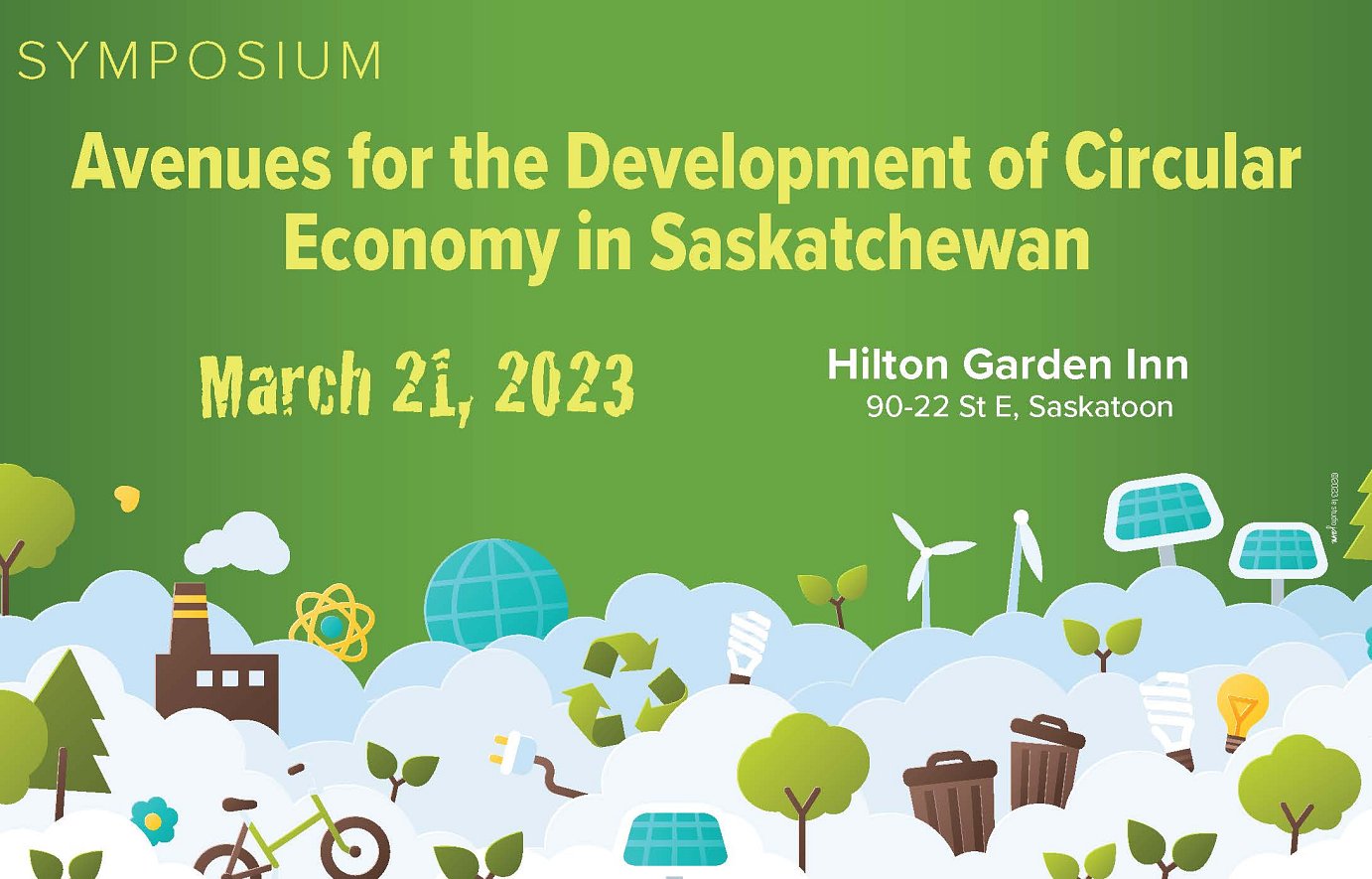
The Conseil économique et coopératif de la Saskatchewan (CÉCS) is a not-for-profit organization that has aimed to foster economic development within the francophone community in Saskatchewan since 1947.
In response to environmental issues, the CÉCS launched the New Green in Business$ initiative to raise community awareness and facilitate the implementation of green economy projects.
Furthermore, the CÉCS is hosting a symposium on March 21, 2023 entitled: "Avenues for the development of circular economy in Saskatchewan". The event will take place in Saskatoon at the Hilton Garden Inn, from 9:00 A.M. to 03:00 P.M.
We are pleased to invite you to this event where successful examples of partnerships between municipalities and entrepreneurs for the implementation of green projects will be presented.
The symposium will bring a greater awareness of the circular economy benefits and feature some initiatives of municipalities and the agricultural sector.
Lunch will be served to participants. Presentations will be interpreted simultaneously in both official languages of Canada, followed by question-and-answer periods.
It is also possible to benefit from an individual meeting with an expert in landfill gas recovery and valorization on March 22 and 23, 2023.
CONFERENCE SPEAKERS
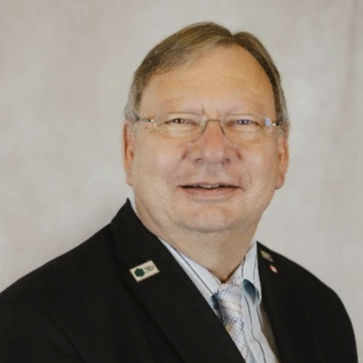
PASCAL BILLARD
Sol-Air Consultants
Title:
Summary:
The Conseil économique et coopératif de la Saskatchewan (CÉCS) commissioned SOL-AIR Consultants to carry out an inventory of recyclable resources, identify participating companies and organizations across the province and propose business opportunities. By attending this conference, you will have the chance to learn the results of this study.
Presenter:
Pascal Billard received his bachelor’s degree in agronomic sciences, specializing in business management, in France. Having worked on three continents (Africa, Europe, and North America), he has participated in designing and managing numerous projects aimed at sustainable development in the agri-food and environmental sectors. He is the president and founder of SOL-AIR Consultants which supports decision-makers in companies, cooperatives, organizations, communities, or administrations involved in the development of agriculture, agri-food, the circular economy, and the environment to carry out feasibility studies, market studies, and business plans for setting up or expanding businesses.
Very involved in the cooperative movement, he was president of CoopZone, the Canadian network of cooperative developers, and is currently a director of Cooperatives and Mutuals Canada.
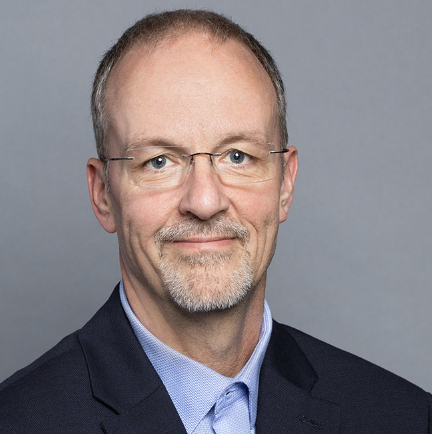
JONATHAN BOS
Vice-President of Asset Development, Village Farms
Title:
RNG Production from a landfill; a Vancouver, BC success story
Abstract:
Methane collection and combustion at municipal waste landfills has been standard practice for multiple decades. Beneficial use most often has been a constant challenge for most sites in the US and Canada. Village Farms (VF) operated a 1.0 version of landfill gas (LFG) sourced from the City of Vancouver municipal landfill, to electricity (sold to BC Hydro) business with beneficial use of the waste heat in its greenhouses in Vancouver for almost 20 years. Due to increasing costs, decreasing economic margins and a striving for the next evolution of LFG usage sustainability, VF set about researching what a 2.0 version of the project would look like as VF was near the end of the LFG supply contract. With a result of better economics and a more complete sustainability story VF initiated the placing of an LFG to RNG upgrading plant. As a foundational first step VF embarked on extending its waste gas supply contract with the City of Vancouver. The city has been instrumental in readily extending its 20+year relationship with VF for another long-term contract- providing the necessary stability for the project financing to become a reality in early 2023. The 3.0 challenge will be to finance a CO2 storage and utilization project – connected to the RNG plant with the CO2 replacing fossil fuel sources for VF’s greenhouse operations, with participatory opportunities for other businesses interested in sourcing sustainable CO2.
Presenter:
Born in The Netherlands, Jonathan has been active in the horticulture industry since 1984. • He has been with Village Farms for 28 years and is responsible for their VFCEI (Clean Energy) division. • Jonathan lived in Vancouver for 25 years. • Since 2009 he lives in Orlando near Village Farms’ corporate offices. • CAD/USA dual citizen

GÉRARD DUBÉ
Coordinator, Compo-Stage project
Title:
Ecology and Consciousness
Summary:
Compost and composting are, without a doubt, important considerations for a circular economy. However, its considerations must meet other criteria to be well situated in this time of climatic emergency. We must attempt to understand the implications of community, scale, equity, inclusivity, and diversity – even revisiting our evolutionary story and finally imagining an appropriate response to the prosperity of all life.
Presenter:
Gérard was born in LaBroquerie, Manitoba where he still resides with his wife, Kelly. This little patch of land used to be a dairy farm that his parents’ hard work kept running. The farm is still active with small-scale breeding of lambs, chickens, pigs, and vegetable products.
Gérard has been involved with several organizations: Organic Producers of Manitoba (OPAM); International Group of Organic Production Inspectors (IOIA); Organic Food Council of Manitoba (OFCM); Manitoba Composting Association Corp. (MCCA); Compo-Stages Manitoba Services Co-op (CSMSC)- president and operator; City of Winnipeg Biosolids Committee: Composting Director and Manager for Overton Environmental (OEE).
Gérard is a master composter, certified in composting by the Green Action Center of Winnipeg and Midwest Bio-Systems-Illinois, USA. In 2012, Gerard received the Manitoba Eco Network's Anne Lindsey Protecting Our Earth Award.
From 1984 to 2015, he worked as a carpenter and carpentry contractor.

JEAN-MARC NADEAU
SUMA
Title:
Managing Waste: Challenges and Successes of Saskatchewan Hometowns
Speaker:
Jean-Marc Nadeau joined the Royal Canadian Mounted Police in 1991. After successfully completing the recruit training program at Depot Division in Regina, he was posted to Kitimat, Colombia -British. Over the next 22 years, Jean-Marc worked in five provinces, in seven RCMP detachments. In 2011, he was deployed for a year to Afghanistan to assist the Afghan National Police. In 2012, Jean-Marc became the General Manager of the "City of Possibilities" in Portage la Prairie, Manitoba. The city is located on the Trans-Canada Highway, about an hour west of Winnipeg. Over 13,000 people live in Portage la Prairie in a catchment area of over 25,000 people. With an overall operating budget of nearly $35 million, the city is home to a major food industry.
Jean-Marc is a Doctor of Philosophy candidate at Johnson Shoyama Graduate School. His area of research includes institutional change in the public sector. In addition, Jean-Marc holds a Master of Business Administration (MBA) from the University of Ottawa, a Certificate in Municipal Administration of Manitoba (CMMA) from the University of Manitoba, and a Master of Laws (LLM) from Osgoode Hall Law School. In 2016, he was elected to the Canadian Association of Municipal Administrators (CAMA) Board of Directors, as their regional representative for Manitoba/Saskatchewan/Nunavut. He was involved with CAPA until November 2017, when he was appointed SUMA CEO.
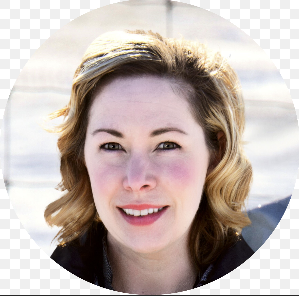
TAMMY SHIELDS
Title:
Recycling agricultural plastics in Saskatchewan
Abstract:
Cleanfarms is a non-profit environmental stewardship organization in Saskatchewan and across Canada. We work collaboratively with our members, partner agencies, and the government to ensure that Canadian farmers can actively contribute to a healthy environment and a sustainable future. Our programs create meaningful change and offer a tangible way to address agricultural waste management across Saskatchewan.
Presenter:
Tammy is the Saskatchewan Program Advisor with Cleanfarms. Based out of Moose Jaw, Saskatchewan, Tammy has been involved with recycling agricultural plastics since she led the first grain bag pilot in Saskatchewan, in 2010. Cleanfarms works with the entire supply chain, from farmers through to the recycling facilities to ensure agricultural plastics and packaging can be responsibly managed and kept out of the environment.
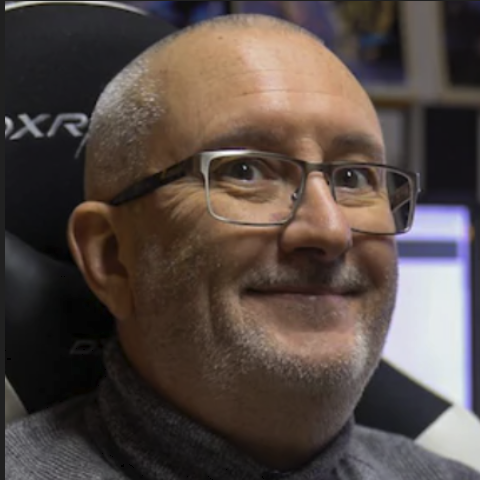
JEAN-MARIE NIGET
Founder, INNOVAGRO Consultant
Title:
The Valorization of Biogas from Landfill Sites as a Tool for the Development of Greenhouse Production
Summary:
In landfill sites, the degradation of putrescible materials generates large quantities of different types of gas over very long periods. Gas production continues for many years after a landfill has closed. The degradation processes of putrescible materials produce two leading gases: carbon dioxide (CO2) and methane (CH4). Methane can be advantageously captured in a landfill and, after purification, used as a low-cost heating fuel for one or more commercial-intensive greenhouse complexes producing vegetables and fruits near the landfill.
Presenter:
Jean-Marie Niget is a consultant agronomist, president of INNOVAGRO consultants (www.innovagro.net). He is a well-known expert in the characterization and recovery of industrial thermal discharges in Quebec and intensive commercial production in greenhouses. This versatility allows him to be actively involved in many circular economy projects in which he applies his mastery of the principles of industrial ecology.
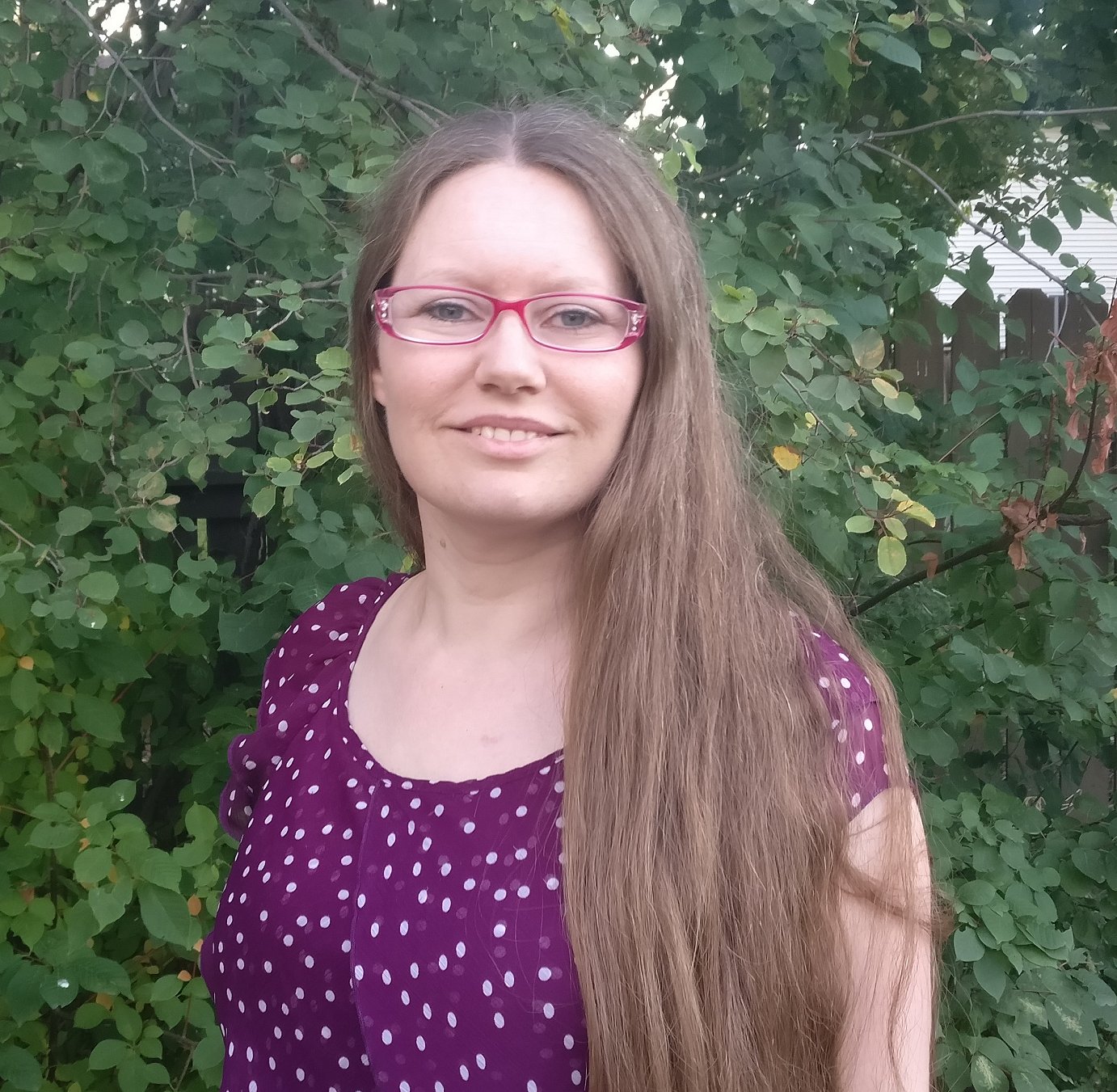
DOMINIQUE TURCOTTE, PHD
Lead Environment Protection Officer, Saskatchewan Ministry of Environment
Title:
Solid Waste Management Facilities in Saskatchewan
Abstract:
Solid waste management in Saskatchewan includes various options for operation including disposal, diversion and recycling. A landfill is a facility that permanently disposes of refuse and other non-hazardous materials. A transfer station is a facility used to temporarily store solid waste before it is transported to a treatment, recycling, recovery or disposal facility. Inert waste, such as some construction and demolition waste that cannot be recycled, may be disposed at inert landfills. Organic waste can be processed at a compost facility to produce a rich, dark soil that is beneficial to plant growth and is sanitized to a degree that protects human health. Diverting waste from landfills extends the life of the landfill cells and help reduce the impacts of solid waste on the environment.
Presenter:
Dominique Turcotte, PhD
Dominique Turcotte is a Lead Environment Protection Officer with the Saskatchewan Ministry of Environment in the Compliance Assurance Unit. She is currently working on the new code chapter for compost facilities, is coordinating solid waste management topics within the ministry and is also regulating industrial facilities around Saskatoon. In her spare time, Dominique enjoys doing crafts and playing music with her young children.
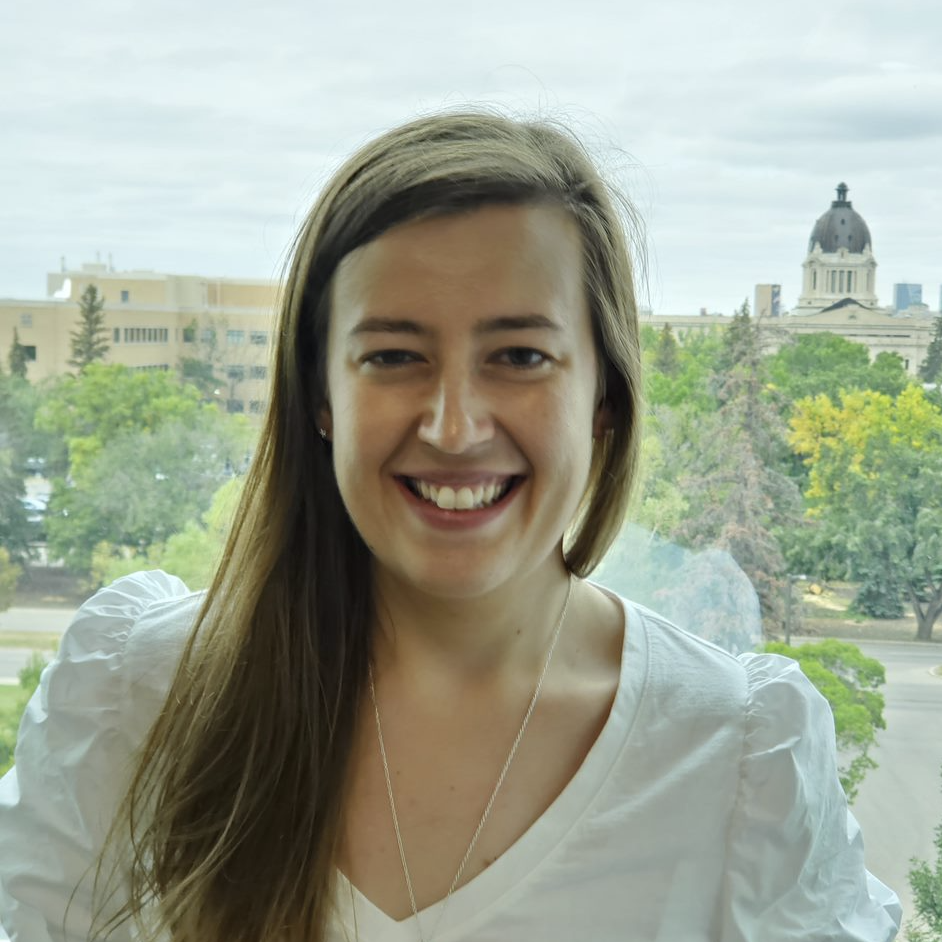
AMY RICHTER, PHD
Title:
Circular Economy and Extended Producer Responsibility
Abstract:
The Circular Economy can be broadly defined as the process of designing out waste while keeping products and materials in use. Achieving circularity requires a shift in product design, consumption patterns, and government policy. Extended Producer Responsibility (EPR) shifts the responsibility for environmental management of end-of-life waste to the producer, creating an incentive for the producer to account for environmental considerations when designing their products. Saskatchewan boasts a number of successful EPR programs for paper and packaging, used oil, paint, and other types of waste. This presentation will provide a brief overview of what EPR is as well as Saskatchewan’s EPR programs, with a focus on EPR for packaging materials, which tend to be in the spotlight more and more these days. Finally, the presentation will discuss Saskatchewan’s solid waste management strategy, and how it supports a circular economy in the province.
Presenter:
Amy Richter, PhD, P.Eng
Amy Richter is a Senior Waste Management Coordinator with the Saskatchewan Ministry of Environment in the Waste Stewardship and Recycling Unit. She oversees several stewardship programs and continues to work on a number of key commitments in the solid waste management strategy. Amy holds a PhD in Environmental Systems Engineering from the University of Regina, where she completed her thesis on regionalized waste management systems.






